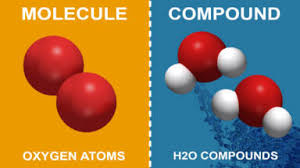
Concept 1.3-The Composition of Matter-7th Grade
Assessment
•
Isaac Leon
•
Chemistry
•
7th Grade
•
71 plays
•
Hard
Improve your activity
Higher order questions
Match
•
Reorder
•
Categorization
.svg)
actions
Add similar questions
Add answer explanations
Translate quiz
Tag questions with standards
More options
12 questions
Show answers
1.
Multiple Choice
The properties of _______________ are different from the properties of the elements in it.
compounds
atoms
isotopes
ions
2.
Multiple Choice
Pure sodium can cause burns. Pure chlorine can cause burns. When they combine into a molecule (NaCl) the new substance is _______________.
a solid crystal that is safe to touch
an explosive solid that must be handled carefully
a combination of gases that can be deadly
a neutral gas that is safe to breathe
3.
Multiple Choice
The shapes of _____________ are determined by the regularly repeating arrangement of its atoms.
hydronium ions
atoms
crystals
hydroxide
4.
Multiple Choice
If you look at a crystal of table salt with a magnifying glass it looks like a tiny cube. This is because _______________.
the molecular structure of sodium chloride is destroyed when it is formed
salt is formed by forcing it through a screen with square holes
salt blocks are cut by machine into tiny square blocks
the molecular structure of sodium chloride forms natural cubes
5.
Multiple Choice
When water becomes ice, the molecules spread out to form a specific shape. What determines this shape?
the number of water molecules in the ice
the temperature of the ice
the structure of the water molecules
the mass of the ice cube produced
6.
Multiple Choice
Salt and sugar appear similar, but their crystals look different at the atomic level. What does this say about the molecular structures of salt and sugar?
Salt and sugar molecules are made of the same atoms arranged in the same patterns.
Salt and sugar molecules are made of different atoms arranged in the same pattern.
Salt and sugar molecules contain the same atoms arranged in different patterns.
Salt and sugar molecules contain different atoms arranged in different patterns.

Explore this activity with a free account
Find a similar activity
Create activity tailored to your needs using
.svg)

Bohr Models
•
8th - 12th Grade

Introduction to Atoms
•
1st - 7th Grade

Atoms
•
8th Grade

Determining Protons Electrons Neutrons
•
8th Grade

Atomic Structure
•
10th - 11th Grade

Atomic Structure
•
10th Grade

Subatomics Review
•
10th - 11th Grade

Atomic Theory
•
9th Grade